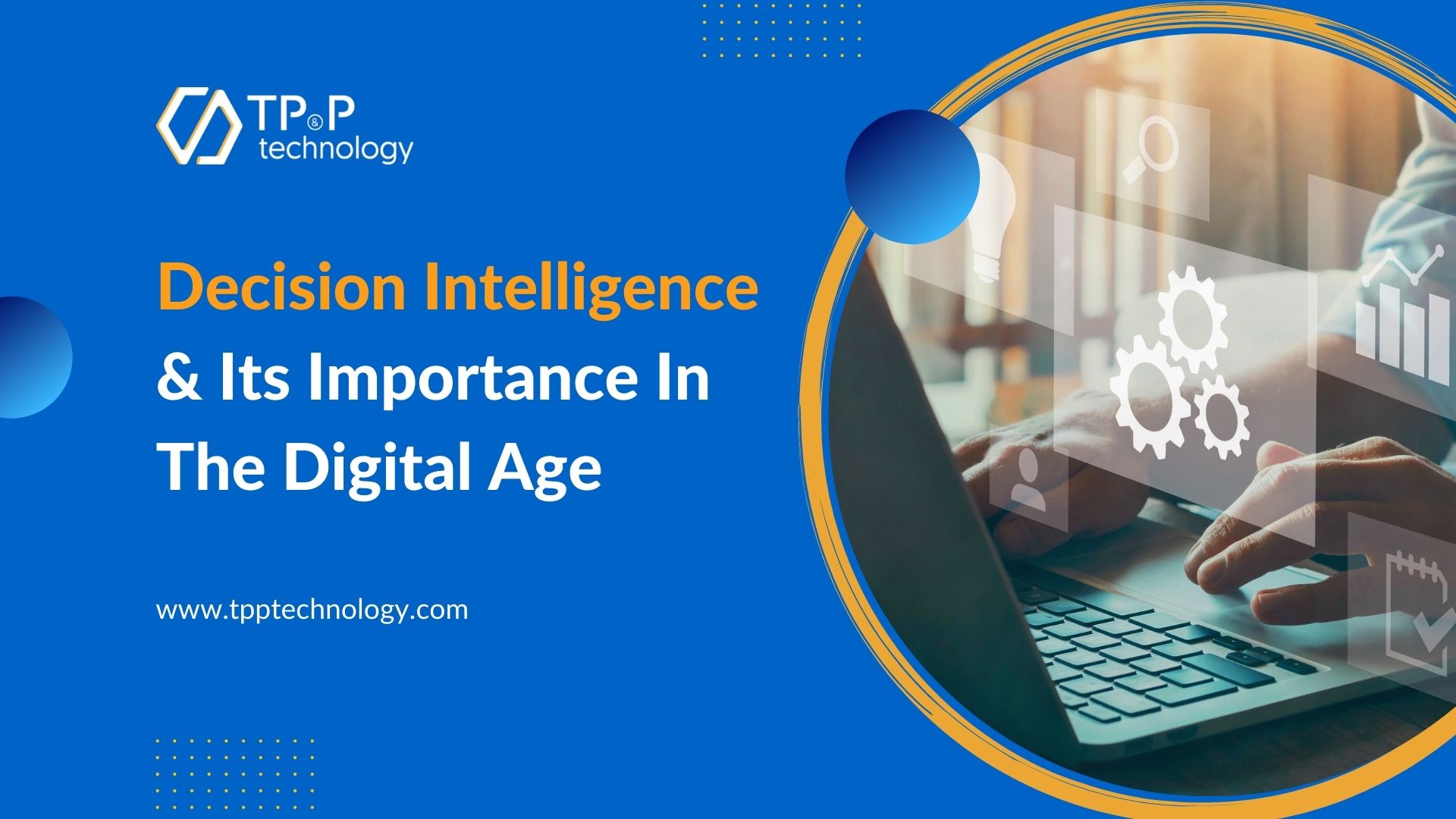
Decision Intelligence & Its Importance In The Digital Age
Gartner predicts that in the next two years, about one-third of large organizations will incorporate decision intelligence and modelling into their work processes, while by 2026, organizations that develop reliable, target-driven AI can expect more than 75% success in innovative projects compared to 40% for those who do not. This growing popularity of AI in decision-making among modern organizations begs the question: why is AI becoming so prevalent in this domain?
To answer this question, let us explore what decision intelligence is and how leveraging artificial intelligence for decision-making can lead to superior outcomes for businesses.
What is Decision Intelligence?
Decision Intelligence involves the utilization of data-driven technologies, such as automation, Artificial Intelligence and machine learning to enhance human decision-making, enabling faster and more accurate insights-driven business decisions. This is achieved by providing everyone with the ability to ask and answer various types of questions, such as what, why, and how, regarding raw data to reduce the time and effort needed to make strategic, tactical, and operational decisions.
Decision Intelligence applies the principles of data science to solve business problems while taking into account stakeholder behaviour to drive adoption and decision-making. It is often a combination of business intelligence, data science, management, and decision modelling
Other significant features of decision intelligence include
- The fundamental principle is that decisions are based on how actions lead to results
- It incorporates different decision-making approaches such as rules-based methods, Machine Learning, and Artificial Intelligence
- It is applicable as a solution for various business problems across different industries
- It reduces the time and effort required to create, develop, and deploy complex business logic
- It helps to resolve conflicts between decision-making practices and the intricate nature of the circumstances surrounding those decisions.
The Importance of Decision Intelligence in the Digital Age
Decision intelligence is a framework that helps data and analytics architects in modelling, aligning, developing, implementing, and tracking decision-making models and processes. It is expected to have a significant impact on business outcomes, and by 2023, it is estimated that more than 33% of organizations will have analysts practising business intelligence.
The goal of decision intelligence is to connect business problems with data science to find appropriate solutions, which requires analyzing stakeholder behaviours and incorporating them into the decision-making process. Decision intelligence is a combination of data science, business intelligence, decision modelling, and overall management.
Some of the distinctive characteristics of decision intelligence include a focus on decisions that depend on the belief of action equals outcome, rule-based approaches to machine learning and artificial intelligence, and solutions to business problems across diverse industries. Decision intelligence is essential for businesses to function and grow in the digital age, as it helps establish protocols for decisions that have quantifiable future impacts.
Data science alone is not enough, and decision intelligence goes beyond data science by combining analytical and structured behavioural approaches to decision-making. Many businesses fail due to a lack of foresight and intuition related to decision intelligence. To address complex and diverse problems, businesses need to connect decision-makers with innovative technologies such as AI and machine learning, which require the use of decision intelligence.
Applications of Decision Intelligence in Various Industries
The use of decision intelligence can bring about significant improvements in crucial areas of organizations such as sales, talent management, store management, and more.
Marketing
A well-established brand is the result of careful planning and analysis of various touchpoints. By utilizing decision intelligence tools, marketers can easily identify effective strategies across various channels such as social media and email, allowing them to optimize the return on investment for each campaign.
Sales
To generate leads for your organization, it is ideal to have immediate access to information about your potential customer's preferences and their preferred methods of receiving information about your products or services. By leveraging decision intelligence technologies to analyze consumer data, you can gain valuable insights that can be used to tailor your messages, increase conversion rates, and boost revenue.
Store management
It is essential for retail profitability to make precise decisions about inventory levels and pricing. Retailers can utilize decision intelligence tools to improve their pricing strategies and inventory levels by analyzing demand patterns, thereby meeting consumers' needs while maximizing their profit margins.
Talent management
When organizations post a job opening, they often receive a large number of resumes to sort through. Limited resources can make it challenging to identify and recruit talented individuals. To address this issue, decision intelligence software can be utilized to analyze candidates' data and offer recommendations based on their background and previous achievements. This enables recruiters to focus their efforts on candidates who are more likely to succeed within the organization.
Supply chain
The maintenance of processes and ensuring their continuity make the supply chain a critical aspect of an organization. The implementation of DI can have a significant positive impact, such as performing automated root cause analysis of defects or delays, optimizing inventory, forecasting demand, monitoring supplier performance, and analyzing quality.
Conclusion
Employing AI-based business intelligence solutions presents an advantageous prospect for organizations to enhance the speed and quality of their decision-making processes in critical business operations. This enables companies to not only fully realize the benefits of becoming data-centric but also consider a broad spectrum of pertinent information while determining their next course of action.
TPP Software has the expertise to support you in creating advanced business intelligence solutions and customizing your decision-making system to meet your current business requirements, including long-term predictions.



